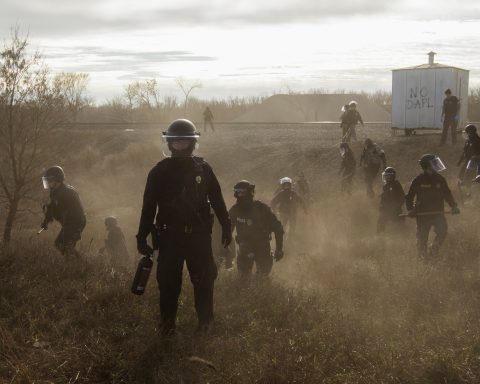With the economic recovery from the COVID-19 pandemic all but complete, greenhouse gas emissions have rebounded. Not even one of the G20 economies that account for 75% of the world’s emissions is on track to meet its 2030 emission target. And these are targets that fall short of what an effective response to the climate emergency would look like. In China, India and the other middle-income countries, emissions are still on the rise.
The incrementalism that has characterized business and government responses to date is failing, and the climate crisis is tightening its grip on economies and communities everywhere. We saw in the response to COVID-19 what an emergency response looks like. How did we muster a “yes” to fighting the pandemic but haven’t been able to do so for global warming? Those dragging their heels on fighting the climate emergency have many reasons to say “no.” But none of them pass muster.
“No, it doesn’t need to be done.”
Denial of the science remains an obstacle, including simple rejection of the evidence as well as a failure to accept the urgency of the crisis we are facing. As concluded by the 28th UN climate summit, COP28, mitigating climate requires an accelerated transition away from fossil fuels in our energy systems, and soon. Yes, we need to do it.
“It needs to be done, but no, it is impossible.”
The key solutions to the problem are both possible and being realized. They include smart grids with renewable electricity and multidirectional flows of information and energy; more efficient and electrified transport; automated, zero-emission buildings; a circular economy with materials recycling and products that are designed for durability and repair; a shift to decarbonized protein for feeding a world of eight billion people; and regenerative forestry and farming that puts a premium on ecosystem health and high value-added production.
These solutions are also growing faster than the problem. From 2019 to 2022, clean energy investment grew 29% per year, while fossil fuel investment languished. The fossil fuel system has a 150-year head start, but the growing momentum of new technologies will trump the inertia of the old way of doing things.
Yes, it is possible to build a prosperous civilization while phasing out fossil fuels; it’s the economy that comes with continued fossil fuel combustion and increased global warming that looks impossible.
“It is possible, but no, it’s not worth the expense.”
This is a common excuse for inaction, but it makes no sense. The once future and abstract costs of a changing climate are here now. They are bearing down with multibillion-dollar ferocity on households, communities, companies and governments from Linton to Lahaina, and they will come to your community too. At the same time, the costs of the solutions have been falling at unprecedented rates, and the companies that are providing the products and services we need for the transition are emerging as drivers of the 21st-century economy.
Yes, we need to phase out fossil fuels. Yes, it is possible and yes, it is worth doing.
To reset our efforts to align with a “yes” to stopping climate change, we need to heed the advice of Dwight Eisenhower: “Whenever I run into a problem I can’t solve, I always make it bigger. I can never solve it by trying to make it smaller, but if I make it big enough, I can begin to see the outlines of a solution.”
We too often focus on incremental business strategies and public policies that can narrow the gap between current emissions and zero emissions, rather than on the business ideas and policies that could close the gap altogether. The cost of putting Canada on a path to zero emissions is in the range of $125 billion per year, including public and private investment, three to five times more than we are spending.
Corporate Knights is launching a major new project – Climate Dollars – to address what needs to be done to close the gap between what we are doing and what must be done to put the economy on a sustainable footing. We will compare, sector by sector, the investments needed to get to zero emissions with the current level of investment, and we will engage leaders in business, government and civil society in developing and implementing strategies for closing the gap.
Are you ready to have that conversation? If you say “yes” to the need, the possibility, the urgency and the benefits of a zero-emission future, and are ready to move beyond incrementalism, we would like to hear from you.
Ralph Torrie is research director at Corporate Knights.





